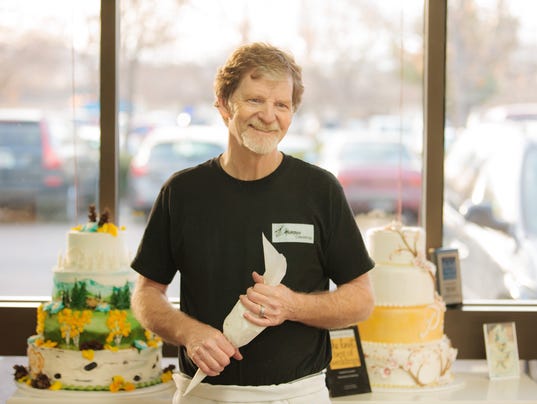05 December, 2017
Cake Baker's POV
What I didn’t say was that I wouldn’t sell them a cake.
I’m happy to sell a cake to anyone, whatever his or her sexual identity. People should be free to make their own moral choices. I don’t have to agree with them.
But I am responsible for my own choices. And it was that responsibility that led me to decline when two gentlemen came into my shop and invited me to create a wedding cake for their same-sex ceremony.
Designing a wedding cake is a very different thing from, say, baking a brownie. When people commission such a cake, they’re requesting something that’s designed to express something about the event and about the couple.
What I design is not just a tower of flour and sugar, but a message tailored to a specific couple and a specific event — a message telling all who see it that this event is a wedding and that it is an occasion for celebration.
In this case, I couldn’t. What a cake celebrating this event would communicate was a message that contradicts my deepest religious convictions, and as an artist, that’s just not something I’m able to do, so I politely declined.
But this wasn’t just a business decision. More than anything else, it was a reflection of my commitment to my faith. My religious convictions on this are grounded in the biblical teaching that God designed marriage as the union of one man and one woman.
Obviously, not everyone shares those convictions. I don’t expect them to. Each of us makes our own choices; each of us decides how closely we will hold to, defend and live out those choices.
The two men who came into my shop that day were living out their beliefs. All I did was attempt to live out mine. I respect their right to choose and hoped they would respect mine.
They did not. And, considering all of the hate mail, obscene calls and death threats my family has received since I was sued, a lot of other people don’t see tolerance as a two-way street, either.
But the Constitution does. The First Amendment defends my right to create custom cake art that is consistent with my faith, while declining requests that ask me to celebrate events or messages that conflict with my faith. As a cake artist, I can live out my faith in my day-to-day life, and make that faith the basis for my creative decisions.
We live in a big, diverse nation. We don’t all have to agree on religion. We don’t have to agree on questions of sexual morality. We don’t even have to agree on the meaning of marriage.
What we should be able to agree on is our mutual freedom, as Americans, to live out the ideals that are most important to us.
Just as I shouldn’t be able to use the law to force others to design something that promotes my beliefs, others shouldn’t be able to force me to design a cake that celebrates theirs.
That, for me and those at Alliance Defending Freedom who are defending me, is what this case is about. I hope the U.S. Supreme Court affirms that basic freedom.
And if those who oppose me would grant me a certain measure of respect — not as someone they agree with, but as a fellow citizen free to stand by my own moral choices, well … that would be icing on the cake.
Jack Phillips is the owner of Masterpiece Cakeshop in Lakewood, Colo. Oral arguments for Masterpiece Cakeshop v. Colorado Civil Rights Commission will be heard Tuesday.
Subscribe to:
Post Comments (Atom)

No comments:
Post a Comment